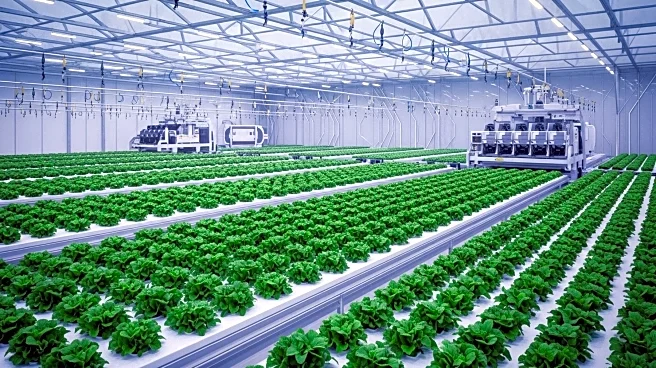What is the story about?
What's Happening?
Food tech investors are increasingly prioritizing economic viability over sustainability narratives when considering investments. This shift is driven by a need for capital efficiency and strong unit economics, as investors become more cautious with their funding. The focus is now on technologies that integrate seamlessly into existing supply chains and enhance profit margins. While sustainability remains a consideration, it is no longer the primary factor in investment decisions. Instead, investors are looking for products that offer direct personal benefits to consumers, such as health improvements, which are more likely to command a premium price.
Why It's Important?
This change in investment strategy reflects a broader trend in the food tech industry towards financial sustainability and profitability. As investors become more discerning, start-ups must demonstrate their ability to generate revenue and scale quickly. This could lead to a more competitive landscape where only the most economically viable companies thrive. The shift away from sustainability as a primary investment driver may also impact the development of environmentally friendly food technologies, potentially slowing progress in this area. However, it underscores the importance of balancing economic and environmental goals in the industry.
What's Next?
As the investment landscape evolves, food tech companies may need to adjust their strategies to attract funding. This could involve focusing on technologies that offer clear economic benefits and can be integrated into existing systems. Companies that can demonstrate strong financials and a clear path to profitability are likely to attract more interest from investors. Additionally, there may be increased collaboration between food tech companies and traditional food industry players to leverage existing infrastructure and expertise.

















